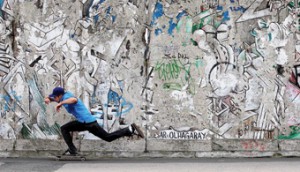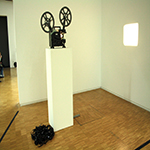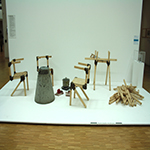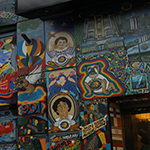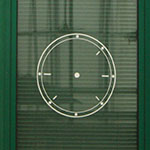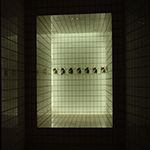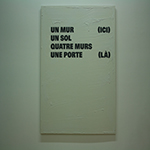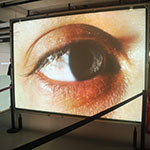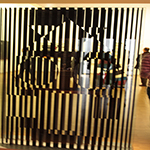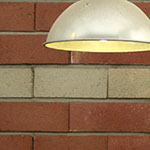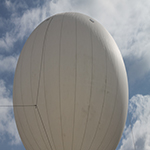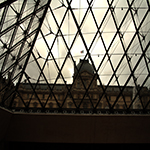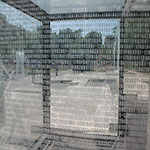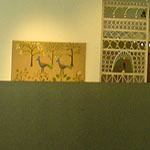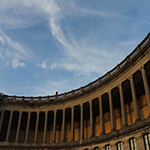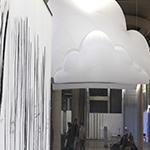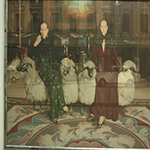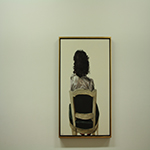Metropolitan Boutique Hotel
Conference Room: Metropolitan
Ul. Berka Joselewicza 19
31-031, Kraków, PolandConference program
- April 24, 2015
- 09:00 - 09:30Registration (Reception Desk, Conference Room Metropolitan - Foyer )
- 09:30 - 10:30Welcome and Opening Remarks
- 10:30 - 11:00Coffee Break and Snacks (Conference Room Metropolitan - Foyer)
- 11:00 - 13:00Panel 1 –Visual Politics of Representation: Eastern Europe in Silent Cinema, Theatre Stage Design, Cinema of Civil Protest and Media Depictions of #Euromaidan
- 13:00 - 14:30Lunch – Metropolitan Restaurant
- 14:30 - 16:30Panel 2 – Readings of the Past: Sites of Memorialisation and Cultural Heritage in Central and Eastern Europe
- 16:30 - 17:00Coffee Break and Snacks (Conference Room Metropolitan - Foyer)
- 17:00 - 19:00Panel 3 – Narrating the East/West Dichotomy: Perceptions, Stories and Cultural Categories in the Making of Eastern Europe
- 19:00 - 19:45Welcome Drink in Krakow
- 19:45 - 21:00Optional Social Dinner
- April 25, 2015
- 09:00 - 11:00Panel 4 – Eastern Europe and the EU: Assessing Normative Claims – Europeanization, Convergence and Integration
- 11:00 - 11:30Coffee Break and Snacks (Conference Room Metropolitan - Foyer)
- 11:30 - 13:00Panel 5 – Visual Transformations: Transition and Change in Urban Image Construction in Central and Eastern Europe
- 13:00 - 14:30Lunch – Metropolitan Restaurant
- 14:30 - 16:30Panel 6 –Readings of the Past: On Memory and Identity in Central and Eastern Europe
- 16:30 - 17:00Coffee Break and Snacks (Conference Room Metropolitan - Foyer)
- 17:00 - 18:30Panel 7 – Art as Cultural Diplomacy
- 18:30 - 19:00Closing Session - Concluding Remarks
- 19:00 - 21:00Optional Social Dinner
- April 26, 2015
- 08:30 - 13:00Visit to Auschwitz – Birkenau Memorial Site Museum
- April 24, 2015
Re-Inventing Eastern Europe (The Fourth Edition)
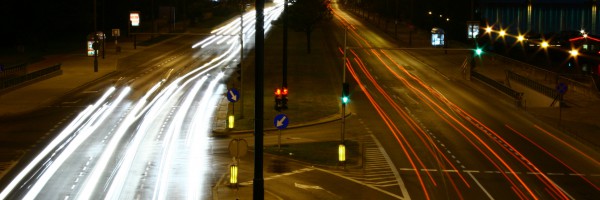
- Conference Description
- Participant’s Profile
- Registration and Fee
- Social Activities and Publication
- Important Dates
- Venue and Directions
- Conference Program
- Panel 1
- Panel 2
- Panel 3
- Panel 4
- Panel 5
- Panel 6
- Panel 7
The Fourth International Conference
Re-Inventing Eastern Europe
24 – 26 April 2015
4* Metropolitan Hotel
Krakow, Poland
With a visit of Auschwitz – Birkenau on 26th of April
With a visit of Auschwitz – Birkenau on 26th of April
Conference Description
Not a long time ago, a British lady was considered bigoted by Gordon Brown upon asking ‘all these Eastern Europeans what are coming in, where are they flocking from?’(1). The zoological word is not a novelty in the cultural invention of Eastern Europe. Maybe, despite her concern with the dangers of immigration for Britain, the lady was right in showing that such a question still awaits for answers in Europe. The ironic aspect however is that a first answer to such a question would point to the fact that the Eastern Europeans come from the Western European imaginary. As Iver Neumann puts it, ‘regions are invented by political actors as a political programme, they are not simply waiting to be discovered’(2). And, as Larry Wolff skilfully showed, Eastern Europe is an invention emanated initially from the intellectual agendas of the elites of the Enlightenment that later found its peak of imaginary separation during the Cold War(3).
The Economist, explicitly considered Eastern Europe to be wrongly labelled and elaborated that ‘it was never a very coherent idea and it is becoming a damaging one’(4). The EU enlargement however was expected to make the East/West division obsolete under the veil of a prophesied convergence. That would have finally proven the non-ontological, historically contingent and unhappy nature of the division of Europe and remind Europeans of the wider size of their continent and the inclusive and empowering nature of their values. Yet still, more than 20 years after the revolutions in the Central and Eastern European countries, Leon Mark, while arguing that the category of Eastern Europe is outdated and misleading, bitterly asks a still relevant question: ‘will Europe ever give up the need to have an East?’(5)
Eastern Europe was invented as a region and continues to be re-invented from outside and inside. From outside its invention was connected with alterity making processes, and, from inside the region, the Central and Eastern European countries got into a civilizational beauty contest themselves in search of drawing the most western profile: what’s Central Europe, what’s more Eastern, what’s more Ottoman, Balkan, Byzantine, who is the actual kidnapped kid of the West, who can build better credentials by pushing the Easterness to the next border. A wide variety of scholars addressed the western narratives of making the Eastern European ‘other’ as an outcome of cultural politics of enlightenment, as an effect of EU’s need to delineate its borders, as an outcome of its views on security, or as a type of ‘orientalism’ or post-colonialism. Most of these types of approaches are still useful in analyzing the persistence of a East-West slope. The region is understood now under a process of convergence, socialization and Europeanization that will have as outcomes an ‘ever closer union’ where the East and the West will fade away as categories. Yet the reality is far from such an outcome while the persistence of categories of alterity making towards the ‘East’ is not always dismantled. The discourses on core/non-core, new Europe/old Europe, pioneers/followers, teachers/pupils, centre/periphery, cosmos/chaos are often maintaining significant ground within the arena of European identity narratives often yet not exclusively voiced by the EU.
The Fourth Euroacademia International Conference ‘Re-Inventing Eastern Europe’ aims rather than asserting to make a case and to provide alternative views on the dynamics, persistence and manifestations of the practices of alterity making that take place in Europe and broadly in the mental mappings of the world. It offers an opportunity for scholars, activists and practitioners to locate, discuss and debate the multiple dimensions in which specific narratives of alterity making towards Eastern Europe preserve their salience today in re-furbished and re-fashioned manners. The conference aims to look at the processes of alterity making as puzzles and to address the persistence of the East-West dichotomies.
(1) See the whole dialogue between Gillian Duffy and Gordon Brown on BBC News online at http://news.bbc.co.uk/2/hi/uk_news/politics/election_2010/8649448.stm
(2) Neumann, Iver. 2001. Regionalism and Democratisation. In Jan Zielonka and Alex Pravda (eds.), Democratic Consolidation in Eastern Europe, Vol 2 International Dimensions. Oxford and New York: Oxford University Press, pp. 58 – 75, p. 71.
(3) Wolff, Larry. 1994. Inventing Eastern Europe. The Map of Civilization on the Mind of the Enlightenment. Stanford: Stanford University Press.
(4) The Economist, January 7th 2010, http://www.economist.com/node/15213108
(5) Marc, Leon. 2009. What’s So Eastern about Eastern Europe? Twenty Years After the Fall of The Berlin Wall. Trowbridge: Oldcastle Books, p.161.
Participant’s Profile
The conference is addressed to academics, researchers and professionals with a particular interest in Central and Eastern Europe, Europe related and European Union topics from all parts of the world. As the nature of the conference is intended to be multidisciplinary in nature, different academic backgrounds are equally welcomed. Cultural approaches, political studies, critical studies, out of mainstream approaches and artistic/literary contributions to the better understanding of Central and Eastern Europe in its past present and future dimensions are all equally welcomed. Euroacademia favors alternative and innovative thinking proposals and non-mainstream methodologies.
Post-graduate students, doctoral candidates and young researchers are welcomed to submit an abstract. Representatives of INGOs, NGOs, Think Tanks and activists willing to present their work with impact on or influenced by specific understandings of Central and Eastern Europe are welcomed as well to submit the abstract of their contribution.
Abstracts will be reviewed and the participants are selected based on the proven quality of the abstract. The submitted paper for the conference proceedings is expected to be in accordance with the lines provided in the submitted abstract.
Registration and Fee
Registration process is now closed
The Participation Fee Includes:
- the conference registration fee
- participant’s package with all the materials for the conference
- eligibility for inclusion in the conference proceedings published volume
- a copy of the electronic volume
- access to Euroacademia discussion group and newsletters
- discounted rates for participation in the future Euroacademia conferences
- coffee brakes and refreshing drinks for all the duration of the conference
- a 3 course lunch on 24th of April 2015 at the 4 stars Metropolitan Fab Fusion Restaurant
- welcome drink reception with snacks on 24th of April 2015
- a 3 course lunch on 25th of April 2015 at at the 4 stars Metropolitan Fab Fusion Restaurant
- the visit at Auschwitz Museum including trip by bus and tour
- certificate of attendance
- access to optional social program
Unfortunately, Euroacademia has no available funds for covering transport and accommodation to/in Krakow. Participants are responsible for securing funding to cover transportation and accommodation costs during the whole period of the conference. Official invitation letters can be sent by Euroacademia to the financing institution to confirm the selection and participation in the conference upon request.
A specific spot in the conference program will be dedicated to social networking and therefore all the participants interested in setting or developing further cooperation agendas and prospects with other participants will have time to present and/or promote their project and express calls for cooperation.
A specific setting (Social Corner) for promotional materials connected with the topic of the conference will be reserved for the use of the participants. Books authored or edited by the participants can be exhibited and promoted during the whole period of the conference and can also be presented within the conference package based on prior arrangements.
An optional dinner and a social event will be organized for the second evening of the conference in a typical Polish cuisine restaurant as optional program for the willing participants. The social dinner will be held based on participant’s confirmation and it costs around 20 Euro to be covered by participants.
Publication:
Selected papers will be published in an electronic volume with ISBN after the confirmation of the authors and a double peer-review process based on an agreed publication schedule. All the papers selected for publication should be original and must have not been priory published elsewhere. All participants to the conference will receive a copy of the volume.
Specific selected papers will be also published in CEJISS (Central European Journal of International & Security Studies)
About CEJISS
Formally launched in January 2007, CEJISS is designed as a double-destination scholarly bridge. The first bridge was constructed with Central Europe (Czech Republic, Hungary, Poland and Slovakia) in mind, focusing on increasing the audience for Central European scholars. In this regard, CEJISS is making a substantial impact as each issue attracts attention in some 45,000 people in nearly 160 countries. However, CEJISS is not Central European centric and invites scholars from around the world to contribute. This has meant that just as Central European scholars now have an easier time gaining a footing outside of the region, so international scholars also have an easier time getting in and making an impact here. With a mere two decades separating our times from the ‘darker’ Cold War years, CEJISS aims to contribute English language perspectives to the peoples of Central Europe and give the latter the amplification their research deserves.
| Important Dates | |
|---|---|
| 1st of March 2015 | Deadline for Submitting Panel Proposals |
| 15th of March 2015 | 300 words abstracts and details of affiliation |
| 16th of March 2015 | Latest notification of acceptance |
| 20th of March 2015 | Sending the Registration Form |
| 25th of March 2015 | Payment of the conference fee |
| 10th of April 2015 | Sending the draft paper to be uploaded on the conference website |
| 15th of April 2015 | Publication of the conference program and uploading the draft papers on the website |
| 24th of April 2015 | The conference commences at 9.00 am |
Venue and Directions
The conference will take place in the conference premises of the exclusive 4 stars Metropolitan Hotel, centrally located in the heart of Krakow, few steps away from the Old Town Square and the trendy area of Kazimierz, making easily accessible within a walking distance any part of the beautiful historic center of Krakow.
Located inside a fully renovated 19th century building – the Metropolitan Hotel is the best rated hotel in Krakow and won the 1st place in Poland in the 2015 TripAdvisor Traveler’s Choice Awards. The hotel is ideally located away from the noise, yet only minutes walk from the city’s main attractions. The charming interiors of the venue are a fusion of traditional architecture with modern and elegant interiors, combined with a great location and perfect service to make for a memorable stay in Krakow. It is a luxury establishment where the secret ingredients of tradition, history and modernity are blended in perfect proportions and surrounded by marvelous historical attractions of the beautiful central Krakow .
Metropolitan Hotel
ul. Berka Joselewicza 19
31-031 Krakow, Poland
tel: +48 12 442 75 00
fax: +48 12 442 75 01
[email protected]
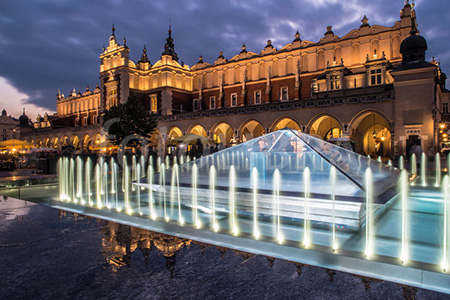








See full information about the conference Location & Map:
HERE
Conference participants are fully responsible for arranging the accommodation and travel to/in Krakow.
Conference Program
The Conference Program is available below by clicking the corresponding tabs for each panel.
The Conference Agenda is available on the right sidebar of the page.
Visual Politics of Representation: Eastern Europe in Silent Cinema, Theater Stage Design, Cinema of Civil Protest and Media Depictions of #Euromaidan
Chair: Emanuel Crudu (Euroacademia, Paris and Brussels)
- Eastern Europe as Other in Silent CinemaThe following study will discuss depictions of Eastern Europe through the medium of silent film. My goal is to explore what distinguishes Eastern Europe from Western Europe and how early cinema has played a vital role in modern understanding of this divide. I will focus on three distinct images of the “orient:” traditional Judaism, vampires, and the nascent Soviet Union. It is beyond the scope of this study to fully delve into the cultural and ideological clashes of east versus west throughout history and even within the bounds of individual episodes in the past century.Adina Zidon, Lehman College, USA
- Theatre Stage Design as the Hyperrealistic Social ImitationSince the second half of the 20th century theatre has started to use completely different form of its expression tools. Mostly in German theatre society critics have started to use a term that refers to this new practice as „Regietheater“ 'director ́s theatre'. Where does this performing strategy have its own borders? How and when we could use „local architectural medium“ to discuss another „local“ stories not only as dramaturgical plan of theatres but as the dramaturgy of today’s Europe?Peter Mazalan, Faculty of Architecture of Slovak University of Technology in Bratislava, Slovakia
- Reinventing Ukraine at 30fps: The Babylon13 CollectiveThis presentation will discuss their work as a compelling “history of the present,” a mushrooming archive whose formal and stylistic elements, I argue, call the question of what “Europe” means to us in 2015. Indeed, similar to Timothy Garton Ash’s assertion in the wake of the “Revolutions of ‘89” that the West had much to learn from the East a quarter-century ago, I maintain that the “Maidan Revolution” and its aftermath show yet again that the (non-EU) East continues to fight for that which the European Union argues. By re-viewing Babylon13, we review this East/West binary, and we renew our commitment to being “united in diversity.”Bjorn Ingvoldstad, Bridgewater State University (USA),and Fulbright U.S. Scholar to Lithuania
- #Euromaidan and its Europeanness in the Ukrainian Maidan (2013-2014): The Discourses of Maidan’s Different Political and Media Actors on European ValuesThis paper explores the different political and media actors’ discourses on Europeanness and on the European values during the Ukrainian Maidan (2013-2014). Arguing that the utopia vision of Europe played an active role in the protests, the author analyzes specific examples of European values, defined by the protesters and their demonstrations. The author concludes that Maidan wanted to show its “European” multinational and gender-equal nature mainly in contrast to Russia, which is depicted as less cultural and civilized than Ukraine and Europe.Nataliya Borys, University of Geneva, Switzerland
Readings of the Past: Sites of Memorialisation and Cultural Heritage in Central and Eastern Europe
Chair: Bjorn Ingvoldstad ( Bridgewater State University, USA)
- Budapest’s ‘Memento Park’: Public Art, Communist Heritage and Contested Representations of the Past in Post-Communist EuropeThis paper uses an analysis of Memento Park, a park that contains forty-two of Budapest´s communist statues and monuments, to challenge discourses on communist heritage. It develops into an enquiry of the multiple paradoxes in the identities of sites displaying communist heritage in Eastern Europe, particularly those presenting works of monumental propaganda. It is centred around comparisons between Memento Park and similar parks in Lithuania, Bulgaria and Russia.Jessie Rodgers, Central Saint Martins College of Art and Design, University of Arts, London, UK
- Memory of Absence: Krakow’s Jewish Ghetto Memorial as Counter-MonumentThe Ghetto Memorial both occupies and blends into the civic environment of Plac Bohaterow Getta and intentionally invites interaction from passersby who use the chairs while waiting for public transportation. Its design reflects the specificity of its site (through its allusion to furniture being piled in the Square prior to the deportation of the Jews) while also employing design strategies used in other contemporary memorials such as those to the 1995 bombing at the Alfred P. Murrah Federal Building in Oklahoma City and to the 9/11 terrorist attacks at the Pentagon in Washington, DC. This paper examines Krakow’s Jewish Ghetto Memorial as an example of a counter-monument and considers its impact on viewers and its efficacy as a public memorial space.Sabrina DeTurk, College of Arts and Creative Enterprises, Zayed University, Dubai, United Arab Emirates
- Art, Politics, and PR. The Krupp Company and the First “Semi-official „Exhibition of Polish Art in Western Germany 1962/63Drawing on new archival material from both German and Polish archives, the paper explores and analyzes the multifaceted entanglement of politics, culture and PR exemplified by the exhibition’s background and reception. The Folkwang exhibition not only provides a striking example for the interdependences of political fiascoes on the one and successes of cultural initiatives on the other hand. It also illustrates how in the process of Polish Western-German rapprochement art and culture were used as instruments of political image-cultivation. Not least, the exhibition epitomizes a period in which the rigid principles of Western German Ostpolitik began to corrode: The ambivalent stance, often resembling a veritable walk on egg shells, which Western German representatives took on the exhibition – sometimes declaring it neutral ground, sometimes charging it with political significance–is symptomatic here.Regina Wenninger, Zentralinstitut für Kunstgeschichte (ZI),Munich
Narrating the East/West Dichotomy: Perceptions, Stories and Cultural Categories in the Making of Eastern Europe
Chair: Gerhard Eichweber (Value Group, Switzerland)
- Garrison Stories: Poland in the Imagination of Twentieth Century Western SoldiersThe myth of Eastern Europe stems from many sources, but study of the myth makers has focused primarily on politicians, philosophers, writers and other intellectuals. This focus overlooks many other groups of myth makers, including soldiers. Soldiers make up a vital resource for studying the myth of Eastern Europe. Military personnel make up a large percentage of “visitors” to Eastern Europe in both war and peace, and their memoirs, memories, and perceptions of Eastern Europe decisively shape the perception of “over there” when they return home. Even more importantly, soldiers’ imaginations about fighting in Eastern Europe help to shape the popular imagination of the region in a way that intellectuals do not.John Edward Fahey, Purdue University, USA
- Conrad Under Western EyesMy essay, uses the case of Joseph Conrad to document the shifting ways that Anglo-American scholars have written about this émigré Polish novelist over the course of the twentieth-century. Less a study of Conrad's fiction than a reception history of the changing ways that Conrad's fiction and authorial persona have been construed by Anglo-American scholars over the last century, my paper uses Conrad to chart the changing 'imagined communities' that emerge not in Conrad's fiction but in the act of critical and scholarly engagement with his fictions.Michael Damon Reid, Singapore University of Technology and Design
- “The Antichrist Lives in the West”: The United States and Western Europe as Russia’s Geopolitical “Other”After the fall of the Soviet Union, Russian political elites continuously attempt to “re-invent” Russia and establish its relationship with the West anew. Interestingly, the notion of the Antichrist plays an important role in many conceptions aiming at re-inventing the post-Soviet Russia. It appears not only in the Dugin's neo-Eurasianism, but also in other political, historiosophical, and even scientific conceptions.Magda Dolinska-Rydzek, International Graduate Centre for the Study of Culture (GCSC) Justus-Liebig-Universität Gießen, Germany
- Eastern Europe – Integral Part of Europe. Retrospective into the FutureEver since, the European concept of harvesting on cultural diversity for common prosperity and peace, materialised in terms such as "EU-Regio" and “Interregio” etc. apparently has been undermijned and financially reduced into a fig-leaf, while egalitarian and merely quantitative "convergence" criteria are enforced upon all. Moreover, with reducing everything to numbers, an erroneous and counterproductive paradigm of finance overruling and sabotaging what meanwhile has been called "real economy" is the main tool of repressing European countries and their self determination together and in peaceful with their neighbors. Europe, and its perception in the world, thus, remains increasingly far behind its potentials.Gerhard Eichweber, Silva Plan / Value Group, Switzerland
Eastern Europe and the EU: Assessing Normative Claims – Europeanization, Convergence and Integration
Chair: Emanuel Crudu (Euroacademia, Paris & Brussels)
- Participation of Member States in EU Functional Cooperation: The Case of Twinning in UkraineThe present paper means to explore and explain the process of selection of Twinning partners from different EU member states (MS) by the Ukrainian government. The Twinning instrument is an integral part of EU functional cooperation, which entails financial and technical assistance to the ENP countries in a bid to support the latter with administrative reforms and legislative approximation to the EU acquis communautaire. Although there exists a formal selection procedure drawing on the quality and relevance of MS administrative system for the needs of the beneficiary country, there has been little scholarly evidence of its actual application to date.Dmytro Panchuk, Ghent University, Belgium
- The Role of the European Union in Democratic Developments in the Baltic StatesAfter the collapse of the Soviet Union newly independent states were free to choose their own political and economic paths. Despite the fact all the Soviet Socialist Republics and Soviet satellite states share the same point of departure, only some of them experienced the successful transition from communism to democracy. On the examples of the Baltic States and Moldova, this paper will analyze the role of the economic performance and external incentives, in this case manly the role of the EU that may have influenced the course of the transition from communism to democracy in those countries.Kristina Piilik, Free University Berlin, Germany
- The Georgian Dilemma: Backstage vs. Front Stage Discourses on EuropeanisationThe paper analyzes the Georgians’ popular discourses on Europeanisation after the country initialled the Association Agreement with the EU in November 2013.It investigates into a dilemma the Georgians encounter: their strong aspiration to integrate with the EU is combined with their perception of Europeanisation as a threat to the national identity.Lia Tsuladze, Tbilisi State University and Research Fellow, St. Antony's College, University of Oxford
- The Regional Cooperation Prospects of the Western Balkans: Can the EU’s Pre-Accession Conditionality Work Again?the paper analyses the EU conditionality in the Balkans as a multi-dimensional instrument that is directed towards reconciliation, reconstruction and reform. As the Union uses both regional and country-by-country strategies for the Western Balkans countries, the paper aims to propose how and what kinds of strengthened regional co-operation in the areas of justice, freedom and security can contribute to fostering their EU integration.Julija Brsakoska Bazerkoska, Ss. Cyril and Methodius University, Skopje, Macedonia
Visual Transformations: Transition and Change in Urban Image Construction in Central and Eastern Europe
Chair: Dana Domsodi (Scuola Superiore Sant’Anna, Pisa, Italy)
- Katowice’s Urban Transformation: Redefining the Post – Mining Identity through the ArtsMy paper addresses the site’s revitalization process in the realm of the city’s aim of a Metropolis and animates the discourse on the local, regional and international significance of the design concept and infrastructure, the implementation of the cultural mining heritage, the arts as creator of belonging and the function of culture in place marketing and sustainable economic development.Dominika Glogowski, artEC/Oindustry and University of Applied Arts Vienna, Austria
- Bratislava Castle and Changes to the Methodological Approach of Monument Restoration in Correlation of Modern EuropeLack of authentic elements and preserved interiors and exteriors as well lead to a question, how to stand up to the methodological matters of restoration of Bratislava castle, which was considered as highly important task even in a context of socialist Czechoslovakia. Task, that was supposed to represent country in the world. What kind of architectural means of expression should define the approach of young socialist nation, according to the state ideology and according to effort of presenting Slovaks as a modern european nation to the preservation of this monument? Modernism.Anna Gondová, Faculty of Architecture of Slovak University of Technology in Bratislava, Slovakia
- Notes on Skopje. Hegemonic and Speculative Urban NarrativesThe paper deals with the ongoing government-funded reconstruction of the Macedonian capital, dubbed "Skopje 2014". The urban revamp involves erection of numerous government and cultural buildings (in an exclusively "neo-classical" style), (over forty) figurative monuments and equestrian statues of national heroes, bridges and monumental objects (i.e. a Triumphal Arc), reconstruction of facades (in "baroque" style) and other miscellaneous objects, in an attempt to support and provide material illustration of long and continuous Macedonian national narrative, that claims direct descent-line to the ancient hero, Alexander the Great.Ivana Sidzimovska, Bauhaus University Weimar, Germany
Readings of the Past: On Memory and Identity in Central and Eastern Europe
Chair: Emanuel Crudu (Euroacademia, Paris & Brussels)
- Ethnic Heterogeneity of “Greater Romania”: The Ethnic Element in Romania’s Memory and Identity since the Second World War to the Post-Communist PeriodThis paper looks at how the ethnic heterogeneity of Romanian society during the inter-wars years had affected the development of the "Romanization Policy" by the Romanian government, and how it subsequently appears at the historical narratives of the Communist and Post-communist research. This paper will analyze the ways in which the Romanian historical research had dealt with the Ethnic heterogeneity of "Greater Romania" after the Second World War during – by focusing on one of the many ethnic groups, which had been subjected to fatal changes by the "Ethnic Policies" of the Romanian Government: The Jewish-Ethnic population.Ronit Fisher, University of Haifa, Israel
- Negotiating Memory Canons: The Issue of Political Violence in Romanian Memory CultureThis contribution argues that the intersection between a local perspective where a moralizing discourse largely informs the rationale of relating to the past and transnational remembrance ethics associated to the European sphere has produced new memorial constructions. By looking at conceptual debates around recent public acts of remembrance and transmission of memory, the paper analyzes “reflexive particularism” (D. Levy 2011) as means of explaining how an apolitical consensus around remembrance and a transnational-oriented configuration of reconciliation have become proper to particular memorial “languages”.Dana Dolghin, University of Amsterdam, The Netherlands
- Shaping the European Identity: Convergent Patterns of Memory and Amnesia After 1945/1989 TrademarksAfter 1989 Europe was exposed to a double re-evaluation: new memories of war and post-war were on table together with Western ‘confused sentimentality’ towards East. On the other side Eastern European nations had now to revisit their own Second World War history and feelings of abandonment after 1945. Since memory and remembrance are more about identity than about outcomes of institutional politics or realist history my paper is an inquiry about perceived gaps in the so called European identity and discontinuities involved in approaching the past in the “reunified” Europe.Emanuel Crudu, Euroacademia (Paris, Lucca & Brussels)
Art as Cultural Diplomacy
- The Artist-in-Residence as Cultural MediatorThis investigation primarily utilizes theories of Homi Bhabha and Richard Kearney to showcase how the artist-in-residence has potential as a unique catalyst of positive global change, participating in the constitution of inter-cultural subject formation. Then Paul Ricoeur’s concepts of translation capture the deeper process that integrates the artist’s ethical encounter with the “other” by modeling a comprehensive, hermeneutic understanding of inter-subjectivity.Deborah Bouchette, Institute for Doctoral Studies in the Visual Arts, USA
- David Loewenstein: Art Intervention as Social PracticeThis presentation focuses on the use of art as a means of social interventional in the United States, focusing specifically on the writings and practice of Kansas-based community artist David Loewenstein. Loewenstein’s career provides an interesting example of the constant negotiation between private and public interests required of a practitioner in this field.Thor J. Mednick, University of Toledo, Toledo, Ohio, USA
- The Exhibition-Dialogue on Contemporary Art in Europe (Lisbon, 1985) as Part of the Council of Europe’s Cultural DiplomacyThis paper will focus on the Exhibition-Dialogue as part of the COE's cultural diplomacy by positioning it on the series of exhibitions organized until the middle 1990's. Furthermore, it will also discuss the possible relations between the Exhibition-Dialogues' conceptual apparatus and the COE's political program as a first level of pan-European political coordination that precedes the European Union's membership.André Silveira, Instituto de História da Arte - FCSH Universidade Nova de Lisboa, Portugal
- Through Art to Good Diplomatic Relations: Exhibitions of Soviet Art in Germany, Italy and the US in the 1920sThe aim of this paper is to bring a light on the way how the multi-institutional organization of these exhibitions influenced the choice of artworks to be presented and artists to be employed and also how these choices influenced the creation of an image of the Soviet Union as a country of tolerance and open-mindedness in the artistic field in the 1920s.Marija Podzorova, University Paris 7 – Paris Diderot and University Paris 1 – Paris Sorbonne, France
- Non-Aligned Modernism: Yugoslavian Modernist Art and Cold War Cultural DiplomacyThis paper examines aspects of the history of modernism in the socialist Yugoslavia by studying the influence of Cold War cultural diplomacy in Yugoslavian culture and politics of the 1950s and 1960s. More specifically, it does this by looking at the 1956 MoMa exhibition of Abstract Expressionism which legitimized modernist ethos as an accepted political, social, and cultural form during Yugoslavia’s transition from a hard-line Soviet-style state, to a more open, humanist-socialist one.BojanaVidekanic, Department of Fine Arts, Faculty of Arts, University of Waterloo, Canada











